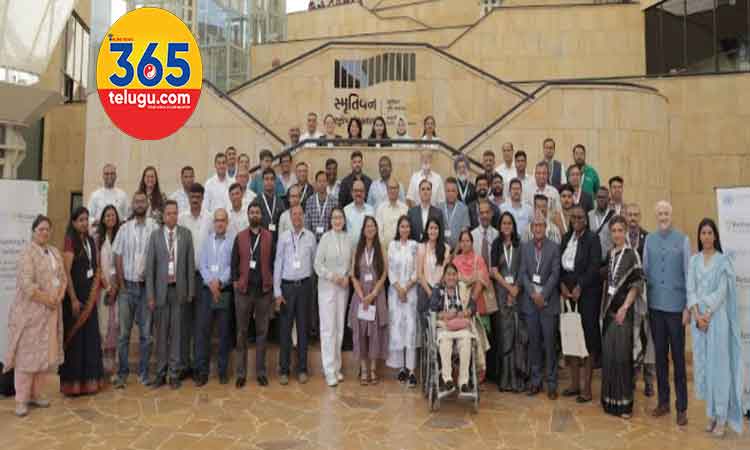365Telugu.com online news,Bhuj, March 26th, 2025: Experts at the Reliance Foundation and United Nations India convening called for bold and transformative actions to strengthen India’s Disaster Risk Management (DRM) systems. The event, ‘Early Warning and Early Action – A Multi-Hazard, Multi-Stakeholder Approach: Experiences, Learning & Sharing,’ focused on enhancing early warning systems and translating alerts into life-saving actions.
Reliance Foundation and the UN in India have partnered to advance disaster risk reduction through regional learning and innovation. As part of this collaboration, a series of convenings are being held to explore multi-hazard, localized, and sector-based approaches for early action.
The second convening in this series took place at the Smritivan Earthquake Museum in Bhuj—a city that has shown remarkable resilience in the face of devastating earthquakes and cyclones.
Read this also…B Parthasaradhi Reddy Raises Alarm Over US Tariff Threat to Indian Pharma Exports
ఇది కూడా చదవండి..భాగస్వాముల ఎంగేజ్మెంట్ను పెంపొందించేందుకు హైదరాబాద్లో ‘సంవాద్’ ప్రారంభించిన పీబీ పార్ట్నర్స్
Key Highlights from the Convening
- Dr. Jayanti S Ravi, Additional Chief Secretary, Government of Gujarat, emphasized the need for decisive action for future generations. She highlighted the resilience of Kutch’s communities and outlined the vision for ‘Smritivan 2’ as a center for multi-hazard disaster preparedness and training.
- Mr. Anupam Anand, IAS, CEO of Gujarat State Disaster Management Authority (GSDMA), spoke about Gujarat’s progress in disaster response, aligning with the Sendai Framework and the PM’s 10-Point Agenda for Disaster Risk Reduction (DRR). He cited Cyclone Biparjoy as an example of effective coordination that resulted in zero casualties and minimal economic loss.
- Mr. Shombi Sharp, UN Resident Coordinator in India, stressed the urgency of early warning systems, noting that over 1.2 billion people worldwide could be displaced by climate-related disasters by 2050. He highlighted Gujarat’s leadership in disaster preparedness and called for global knowledge-sharing to strengthen anticipatory action.
- Mr. Sudarshan Suchi, Chief Development Officer, Reliance Foundation, reaffirmed the Foundation’s commitment to disaster resilience through collaboration, technology, and community engagement. He emphasized Reliance’s long-standing support for Gujarat in times of crises, from the Bhuj earthquake to Cyclone Biparjoy.
Discussions & Key Takeaways
- Advanced Early Warning Technologies – Impact-based forecasting, AI-driven prediction models, and real-time data applications.
- Global Learnings – Lessons from the Global South on anticipatory action strategies and climate adaptation.
- Slow-Onset Disasters – Strategies for mitigating droughts, protecting livestock, and ensuring food security.
- Community-Centric Approaches – Strengthening local response capacities and ensuring inclusivity for people with disabilities.

Moving Forward
The Bhuj convening built upon insights from the first event in Bhubaneswar, Odisha (November 2024), which emphasized livelihood security and gender-focused disaster response. This latest discussion advanced the agenda by highlighting multi-sectoral coordination and the role of technology in disaster preparedness.
Read this also…PBPartners Brings ‘Samvaad’ to Hyderabad, their flagship event for Stakeholder Engagement
ఇది కూడా చదవండి…భారత వినియోగదారుల కోసం ప్రత్యేకంగా పరీక్షించిన OPPO F29 సిరీస్ – డ్యూరబుల్ ఛాంపియన్ భారత్లో లాంచ్!
The ‘Early Warning to Early Action’ series aims to document best practices, identify innovative solutions, and shape policy-level outcomes to protect lives and livelihoods. The Bhuj convening concluded with a strong call to accelerate early warning adoption across India, ensuring that no community is left behind in disaster preparedness.


